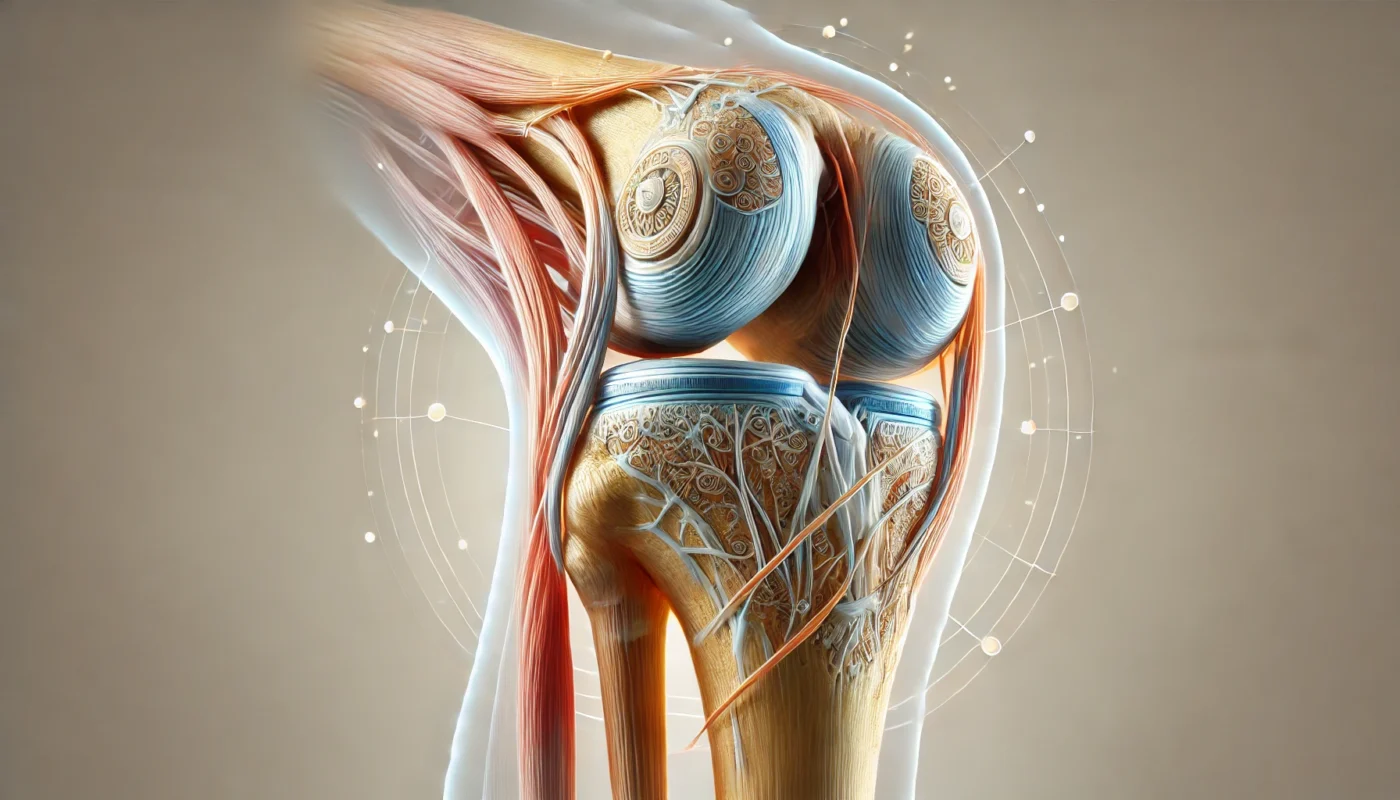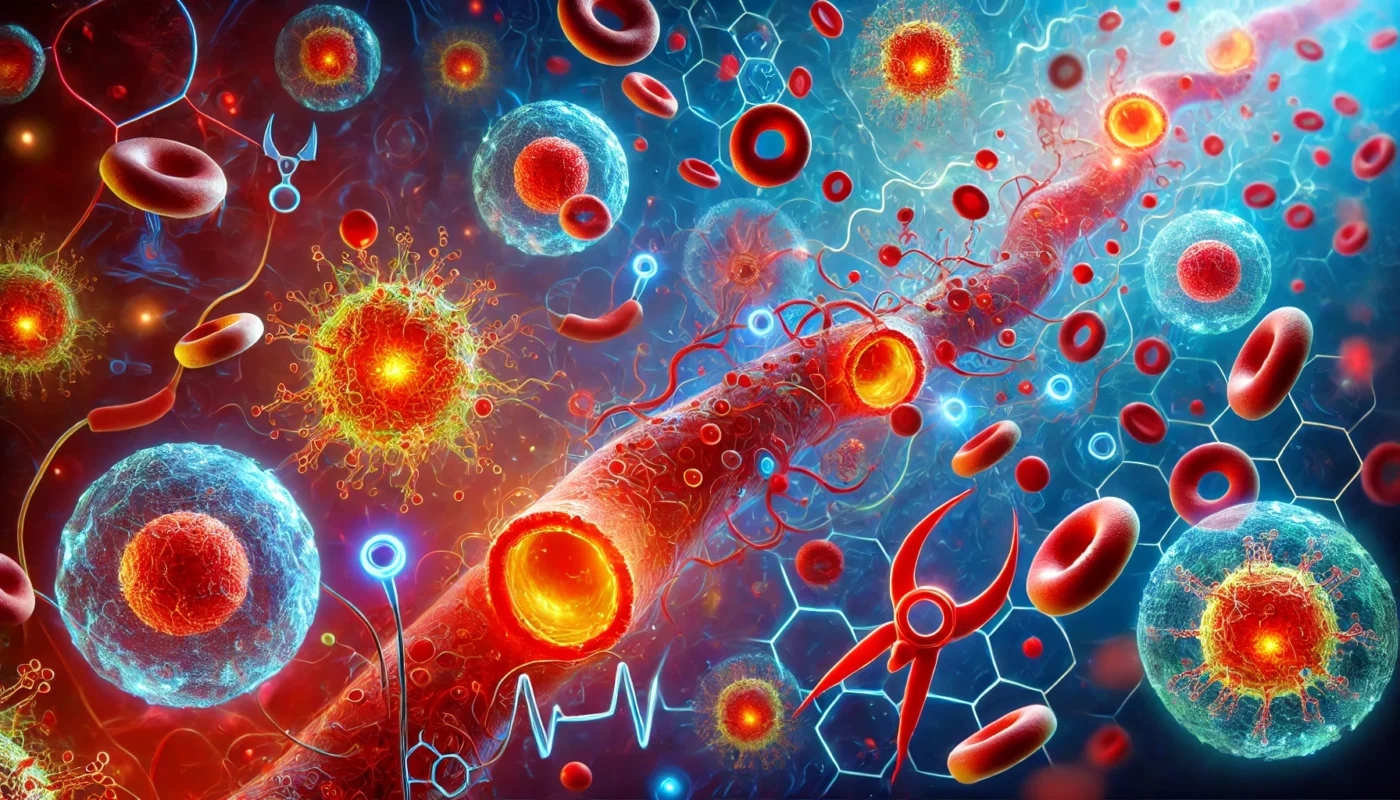Joint health is a pivotal aspect of our overall well-being that often gets overlooked until discomfort sets in. For those seeking to maintain or restore joint health, understanding natural remedies can be a game-changer. These remedies not only offer a holistic approach to health but also minimize the reliance on conventional medications. Let’s delve into natural solutions and practical advice to keep your joints in top form.
Tag Archives: Chronic Conditions
Holistic health focuses on treating the whole person—mind, body, and spirit—rather than just the symptoms of a disease. This approach considers physical, emotional, social, and spiritual wellness as interconnected and essential for overall health.
Functional holistic medicine is an integrative approach that combines traditional medical practices with alternative therapies. This type of medicine emphasizes the prevention and treatment of chronic diseases by addressing the root causes rather than merely managing symptoms. Practitioners work closely with patients to develop personalized treatment plans that may include lifestyle changes, nutrition, stress management, and alternative therapies such as acupuncture or chiropractic care.
Arthritis is a term that encompasses over 100 different types of joint diseases and conditions. The most common forms are osteoarthritis, which results from wear and tear on the joints, and rheumatoid arthritis, an autoimmune disorder where the body’s immune system attacks its own tissues. The impact of arthritis goes beyond physical discomfort, affecting emotional well-being and daily activities.
Joints are the connections between bones that allow for movement and provide mechanical support. Ligaments are the fibrous connective tissues that link bones together at the joints. Both are pivotal in maintaining physical functionality. When joints are not healthy, it leads to discomfort, pain, and even debilitating conditions such as arthritis.
Aspirin is a common household name. It’s a medication that many of us reach for when we’re dealing with a headache or a fever. But have you ever wondered what class of drugs aspirin belongs to?
The answer is that aspirin is a type of nonsteroidal anti-inflammatory drug, or NSAID for short. This group of drugs is known for its ability to reduce inflammation, pain, and fever.
But what does it mean for a drug to be an NSAID? And how does aspirin, as an NSAID, work in our bodies?
These are important questions, especially for those of us who are keen on understanding our health and wellness at a deeper level. Whether you’re a fitness enthusiast, a health enthusiast, or a medical patient, understanding the science behind common medications like aspirin can empower you to make informed decisions about your health.
In this article, we’ll delve into the world of NSAIDs. We’ll explore how these drugs work, their benefits, and potential side effects.
We’ll also provide practical advice on how to use these medications safely and effectively. So, whether you’re managing a health condition, recovering from an injury, or simply seeking to optimize your wellbeing, this article is for you.
Let’s start our journey by understanding what NSAIDs are and the role of aspirin as an NSAID.
Vitamin D is often associated with bone health and immune function. But did you know it also plays a crucial role in managing inflammation?
Inflammation is a natural immune response. However, when it becomes chronic, it can lead to various health issues. Recent research suggests that vitamin D can help modulate this process.
This article aims to explore the anti-inflammatory properties of vitamin D. We’ll delve into the science behind it, making it accessible for fitness enthusiasts, health enthusiasts, and medical patients alike.
We’ll also discuss how vitamin D can be beneficial for various health conditions related to inflammation. Plus, we’ll provide practical ways to incorporate vitamin D into your health and wellness routines.
Understanding the link between vitamin D and inflammation can help you optimize your health. It can guide you in managing existing health conditions or even preventing potential ones.
So, whether you’re looking to recover from an injury, manage a health condition, or simply optimize your health, this article is for you. Let’s dive into the fascinating world of vitamin D and its anti-inflammatory properties.
Beans are a staple in many diets worldwide. They’re packed with nutrients and offer numerous health benefits.
But, are beans anti-inflammatory? This question has sparked much interest and debate.
Inflammation is a natural response of our bodies. It’s crucial for healing and protecting us from harm. However, when inflammation becomes chronic, it can lead to various health issues.
Diet plays a significant role in managing inflammation. Certain foods can either trigger or reduce inflammation.
Beans, as part of the legume family, are rich in fiber, protein, and antioxidants. These components are known for their potential anti-inflammatory effects.
But, there’s more to the story. The relationship between beans and inflammation is complex and multifaceted.
This article aims to delve into this topic. We’ll explore the nutritional profile of beans, their potential anti-inflammatory properties, and how to incorporate them into your diet.
Whether you’re a fitness enthusiast, a health-conscious individual, or a medical patient, this comprehensive guide will provide you with valuable insights. Let’s embark on this journey to better understand the power of beans in combating inflammation.
Inflammation is a term we often hear. It’s linked to a host of health conditions, from arthritis to heart disease. But what exactly is inflammation?
In simple terms, it’s the body’s response to injury or illness. It’s a crucial part of our immune system. However, when it becomes chronic, it can lead to serious health problems.
This article aims to demystify inflammation. We’ll delve into the science behind it, exploring its causes and effects. We’ll also look at the role of diet in inflammation, addressing common questions and misconceptions.
Can carbs cause inflammation? Does cheese or red meat exacerbate it? We’ll explore these questions and more. We’ll also discuss the impact of certain foods on inflammation, such as nuts and processed meats.
We’ll provide a comprehensive list of inflammatory diseases. From common conditions like rheumatoid arthritis to lesser-known disorders, we’ll cover a wide range. We’ll also discuss the symptoms that characterize inflammation and how to identify them.
But this article isn’t just about understanding inflammation. It’s about empowering you to manage it. We’ll provide practical advice on how to prevent or reduce inflammation through diet and lifestyle changes.
We’ll discuss the role of antioxidants and omega-3 fatty acids in combating inflammation. We’ll also explore the impact of lifestyle factors, such as stress and sleep, on inflammation.
For fitness enthusiasts, we’ll provide tips on reducing exercise-induced inflammation. For health enthusiasts, we’ll offer advice on balancing traditional and holistic approaches to inflammation.
For medical patients, we’ll provide guidance on managing inflammation related to health conditions. We’ll also discuss the importance of understanding the scientific research behind inflammation and its treatments.
Inflammation is a complex topic. But with the right information, it’s manageable. Whether you’re a fitness enthusiast, a health enthusiast, or a medical patient, this article aims to provide you with the knowledge and tools you need to take control of your health.
So, let’s dive in and explore the world of inflammation. Let’s understand it, manage it, and live healthier lives.









